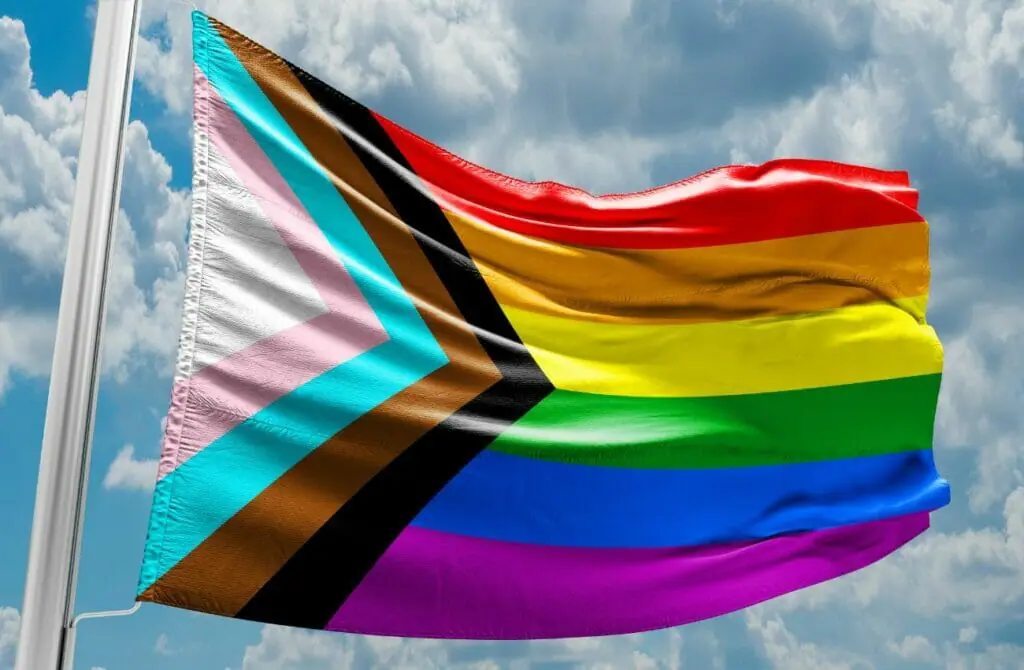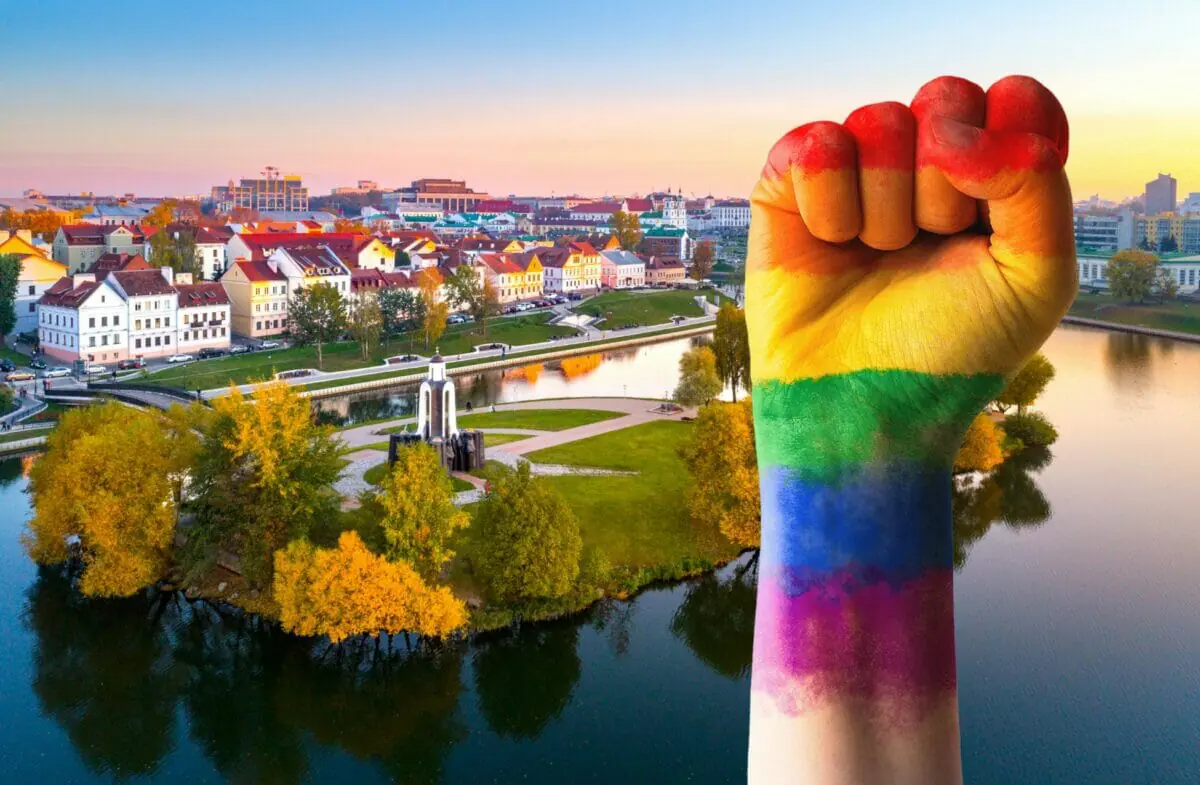LGBT rights in Belarus have been a contentious issue, with some legal progress made, but the overall situation remains far from ideal for the LGBTQ community. While homosexuality was decriminalized in 1994, no protections against discrimination exist, leaving many LGBTQ individuals vulnerable to unequal treatment.
There is a persistent lack of visibility for the LGBTQ community and limited support from the government or the general public. Advocacy groups continue to work tirelessly to make progress and improve the situation for LGBTQ people in the country.
For travelers, it is important to be aware that the situation for LGBTQ individuals in Belarus may differ from that of their home country. While the legal situation has improved in recent years, with changing gender now allowed without surgery, there is still much work to be done to achieve full equality.
For those visiting Belarus and interested in engaging with or supporting the local LGBTQ community, it is essential to seek current advice and remain vigilant, as conditions can change rapidly, and information can quickly become outdated.
Professional organizations, such as the LGBT Human Rights Project “GayBelarus”, are working towards raising awareness and providing a foundation for LGBTQ rights in the country. By staying updated on the work of such advocacy groups and being cautious in new environments, visitors can help protect themselves and the LGBTQ community in Belarus.
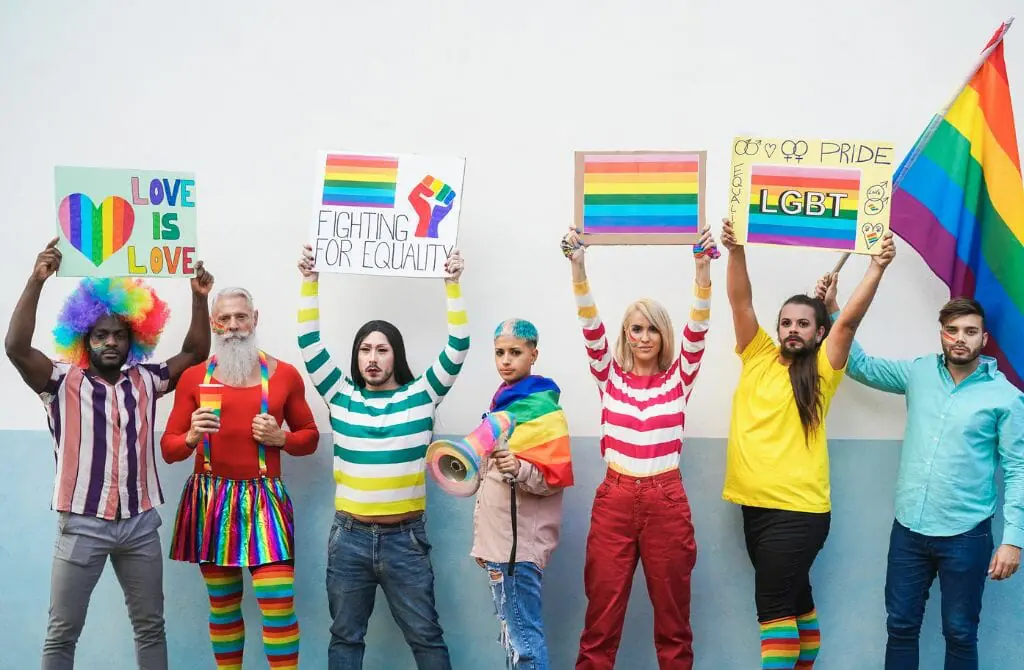
History Of LGBT Rights In Belarus
In Belarus, the history of LGBT rights has been influenced by various factors, including the country’s relationship with neighboring Russia, the European Union, and the United Nations. Homosexuality was decriminalized in 1994, marking a significant milestone in the recognition of LGBT rights in the country.
Despite this progress, public opinion on the issue remains divided, and the overall situation of the LGBT community is also influenced by the views of the Orthodox Church, which holds considerable sway in Eastern Europe.
Numerous local and international advocacy groups, including GayBelarus and ILGA-Europe, have actively sought to promote equal rights and greater visibility for the LGBT community in Belarus.
Their initiatives have often faced opposition and challenges, such as the difficulty of registering LGBT organizations due to the criminal code’s article 193-1. This article stipulates that any activity in an unregistered organization can be punished by up to 5 years of imprisonment.
In terms of developments on the ground, there have been instances of peaceful protests and displays of rainbow flags, the international symbol of LGBT rights. However, these efforts have also been met with homophobia and backlash from some segments of society.
It should be noted that the situation can change rapidly, and information can become outdated, so it is important to seek current advice before traveling or engaging in activism.
When discussing LGBT rights in Belarus, it is essential to consider how these issues affect local people and tourists alike. While progress has been made, such as the allowance of gender changes without the requirement for surgery, other areas, such as same-sex marriage and adoption, remain prohibited.
As such, those advocating for LGBT rights should remain vigilant and cautious, as the overall situation can change, and bad actors may be present in any country.
In conclusion, the history of LGBT rights in Belarus is a complex and evolving landscape influenced by various cultural, political, and religious factors. Local and international advocacy groups continue to work passionately to promote equal rights, visibility, and protections for the LGBT community despite facing challenges and opposition.
The situation remains dynamic, and it is crucial for those interested in the subject and traveling to Belarus to stay updated on the latest developments and exercise caution to ensure their safety.
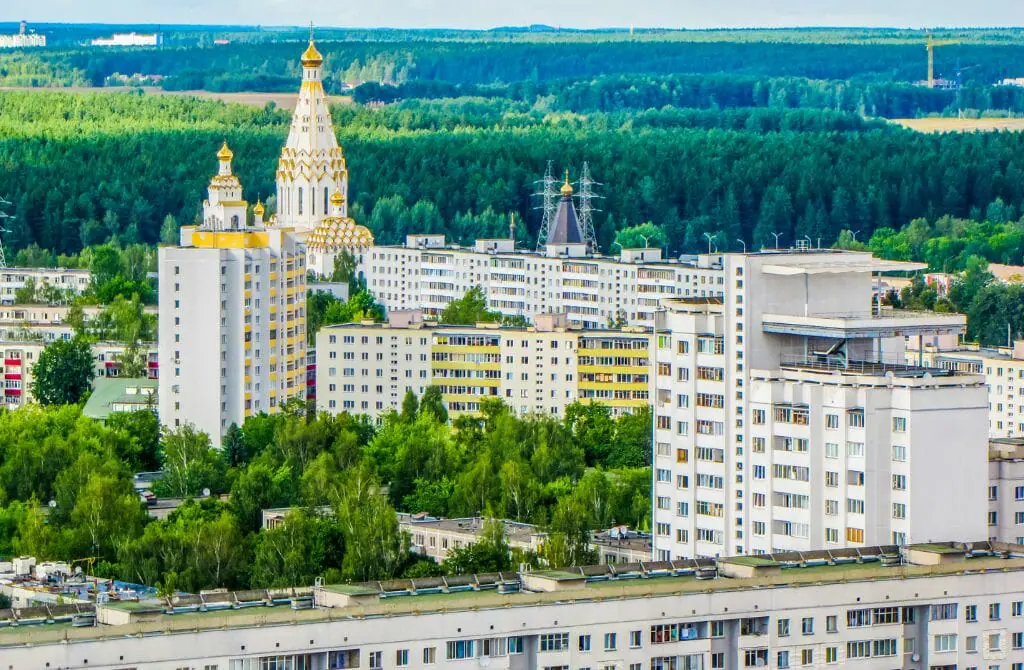
0
The Legal Situation In Belarus
In Belarus, homosexuality is legal; however, the LGBT community faces numerous challenges in terms of rights and protections. There are no anti-discrimination laws in place to protect LGBT people, and same-sex couples are not granted the right to marry or adopt children. Additionally, there is no legal recognition for non-binary gender individuals in the country.
Amnesty International and other human rights organizations, such as the Belarusian Helsinki Committee and the LGBT Human Rights Project, have reported on numerous cases of discrimination and violence against the LGBT community in Belarus. These issues persist due to the absence of strong legal protections and the reluctance of Belarusian authorities to address and improve the situation.
Freedom of expression for the LGBT community is also limited. A notable example is when the first attempt to register an LGBT organization in Belarus occurred in 2011, with activists of “GayBelarus” aiming to establish “HR Defence Center – Alternative Plus.”
The process proved to be challenging due to Article 193-1 of the Belarusian criminal code, which can impose a prison sentence of up to five years for participation in unregistered organizations. As a result, registering an LGBT organization remains difficult in the country.
Situations in Belarus can change rapidly, so it is crucial to seek updated information and advice before traveling or engaging in any activism. It is essential to remain vigilant and cautious, as there may be ill-intentioned individuals in every country.
To stay informed and receive support, it is beneficial for LGBT individuals and their allies to connect with local and international advocacy groups, such as Amnesty International or the Belarusian Helsinki Committee. These organizations can provide guidance and assistance in the face of potential discrimination or legal issues.
While the legal situation for LGBT individuals in Belarus remains challenging, staying informed and connected to supportive networks can provide some assistance and protection.
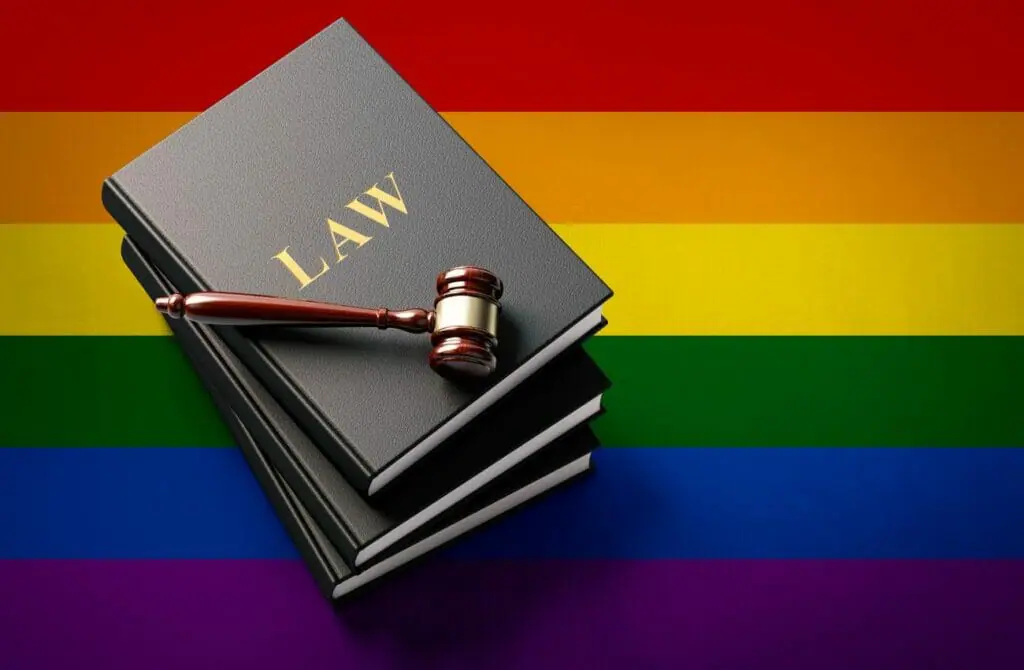

The LGBT Social Situation In Belarus
In Belarus, the social situation for LGBT individuals is challenging, as the country lacks anti-discrimination protections for LGBT people and does not prohibit hate crimes based on sexual orientation and gender identity. Homophobia and discrimination against the LGBT community are prevalent, and public opinion tends to be largely intolerant.
The youth and children in Belarus face unique difficulties as they must navigate the prejudices present in society while also figuring out their own identities. Gender equality in the country is limited, especially concerning the rights and recognition of trans and non-binary individuals. Public association and open expression of one’s LGBTQ+ identity can put individuals at risk of experiencing prejudice, harassment, or even police brutality.
The discourse surrounding LGBT rights is complex in Belarus. Although same-sex sexual activity was legalized in 1994, there has been little progress since then. Minority groups, especially those advocating for LGBTQ rights, face the risk of being targeted by both society and the government, particularly during times of political unrest or tension.
Mental health institutions in Belarus have a history of pathologizing homosexuality, which can lead to improper treatment or even blackmail of LGBT individuals who seek mental health care. It is essential to seek current advice before accessing mental health resources if you are an LGBT person in or visiting Belarus.
In order to stay safe and protect oneself, being discreet about one’s sexual orientation or gender identity is important in Belarus. The situation can change fast, and it is always advisable to remain vigilant as there are bad actors in every country. Local LGBT advocacy groups, like the Human Rights Center “Viasna” and “GayBelarus,” can provide support and updated information on the current state of LGBT rights and safe spaces in the country.
Visitors to Belarus, especially LGBT individuals, are advised to educate themselves on the local situation and take precautionary measures. Tourists should always be aware that the level of acceptance and safety they may experience as a visitor may differ significantly from what local LGBT individuals face.
Staying informed and vigilant is key to ensuring one’s safety in a dynamic and unpredictable social environment.
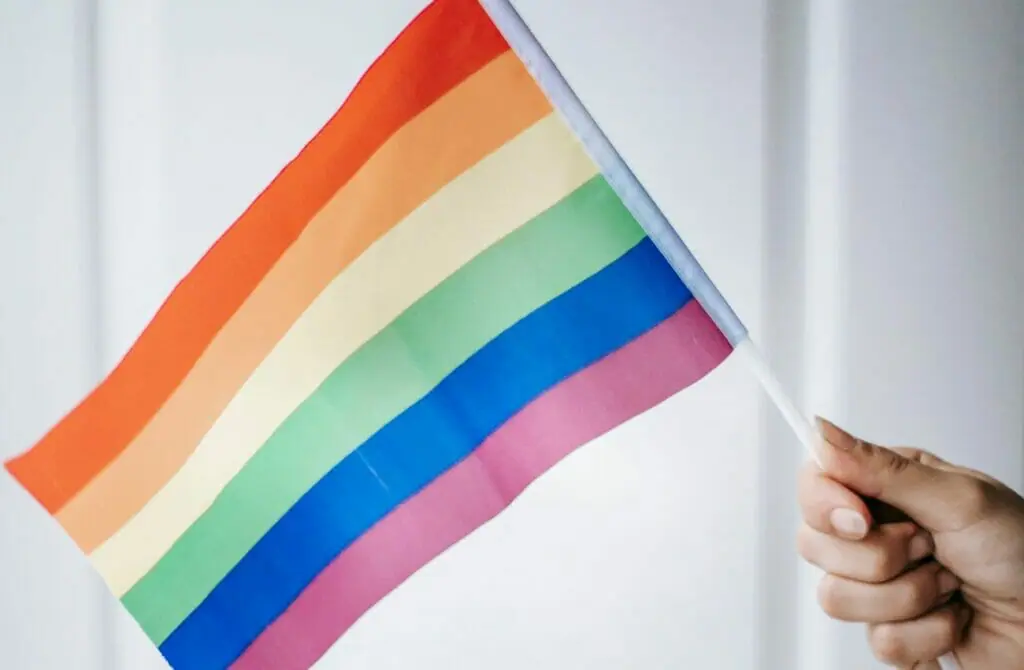
Trans Rights In Belarus
In Belarus, transgender individuals continue to face challenges in terms of recognition and protection of their rights. There is a lack of comprehensive anti-discrimination laws that explicitly address gender identity, leaving transgender people vulnerable to discrimination, harassment, and abuse.
Human rights organizations and LGBT advocacy groups voice concerns over the maltreatment and stigmatization of transgender individuals in the country.
Transgender people looking to legally change their gender on official documents must undergo a complicated and prolonged procedure, which includes a psychiatric evaluation, hormonal treatment, and mandatory surgical interventions. This intrusive process raises concerns regarding respect for bodily autonomy and privacy.
Despite the decriminalization of same-sex sexual activity in 1994, public discourse around transgender issues remains negative and hostile. Transphobia is prevalent in society, fueled by the lack of support from public funds and the media’s biased representation of the LGBT community. This hostile environment can be particularly challenging for transgender individuals, both local residents and tourists.
As the situation in Belarus can change rapidly and information may become outdated, it is crucial for transgender individuals to seek current advice before traveling or engaging in public activities that might expose them to risk.
This includes consulting reliable sources and reaching out to local LGBT organizations, such as Lambda Belarus and GenderDoc-M. Staying informed and vigilant is essential for ensuring personal safety and exercising individual rights.
To address the challenges faced by transgender people in Belarus, it is necessary to push for the implementation of comprehensive anti-discrimination laws and the improvement of current procedures related to gender marker changes.
International human rights organizations, local activists, and transgender individuals must join forces to promote understanding and inclusion of all members of the LGBT community, protecting their rights to dignity, freedom of expression, and equal treatment under the law.
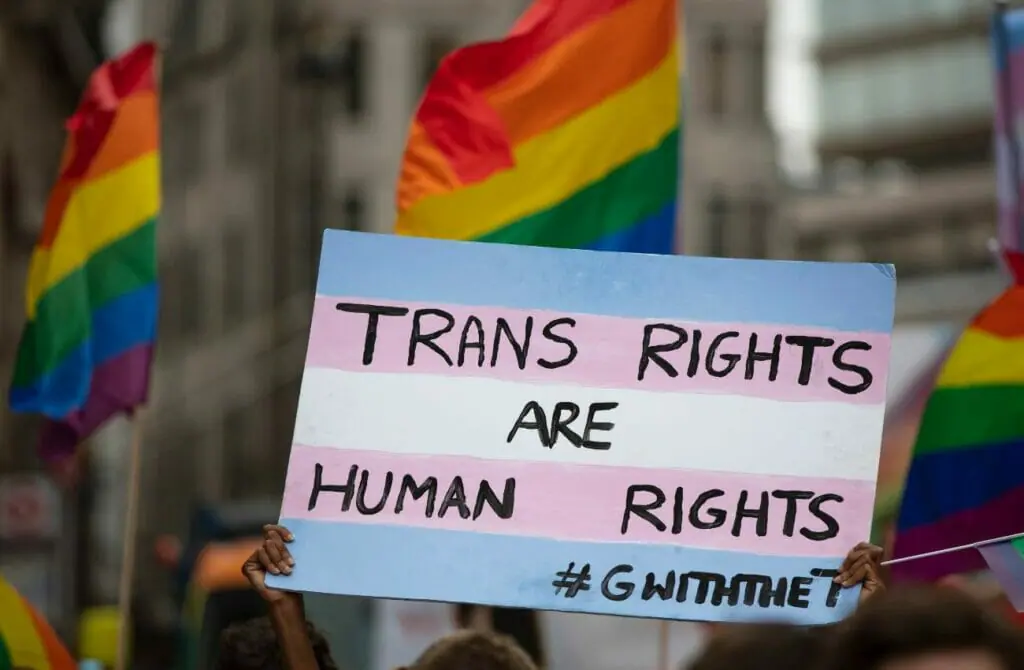

The Future For The Queer Community In Belarus
The future of LGBT rights in Belarus remains uncertain as the country continues to face significant challenges regarding human rights, freedom of expression, and visibility for sexual minorities.
The ongoing fight for democracy in the nation has intensified these issues, with activists and organizations like GayBelarus and the Belarusian Association of Journalists documenting cases of arbitrary detention, excessive force, and attacks on journalists. This has led many to question the safety and security of both locals and tourists within the LGBT community.
Promoting and safeguarding LGBT rights in Belarus requires addressing a range of concerns. These include legal recognition and equal rights for same-sex couples, increased visibility of the community and women’s rights, and effective measures to counter discrimination and prejudice.
To improve the overall human rights situation, the government must participate in initiatives like the Universal Periodic Review and actively engage with civil society organizations.
Local and international LGBT advocacy groups, such as GayBelarus and ILGA-Europe, play a crucial role in fostering the dialogue on LGBT rights and pushing for progress in Belarus. By raising awareness, providing support to the community, and holding the government accountable, these organizations help to lay the foundation for future change.
For those considering traveling to Belarus, it is essential to stay up-to-date on the current human rights situation, as it can change quickly and unpredictably. It is also crucial for visitors to be aware of potential threats and to exercise caution when discussing sensitive topics like LGBT rights or engaging in any activism.
Travelers should seek advice from reliable sources and connect with local LGBT communities to ensure their safety.
In conclusion, the future of LGBT rights in Belarus depends on the dedication and resilience of activists, organizations, and the broader civil society. It is vital for the local and global community to remain vigilant and supportive of the ongoing struggle for human rights, freedom of expression, and equality for all in the country.
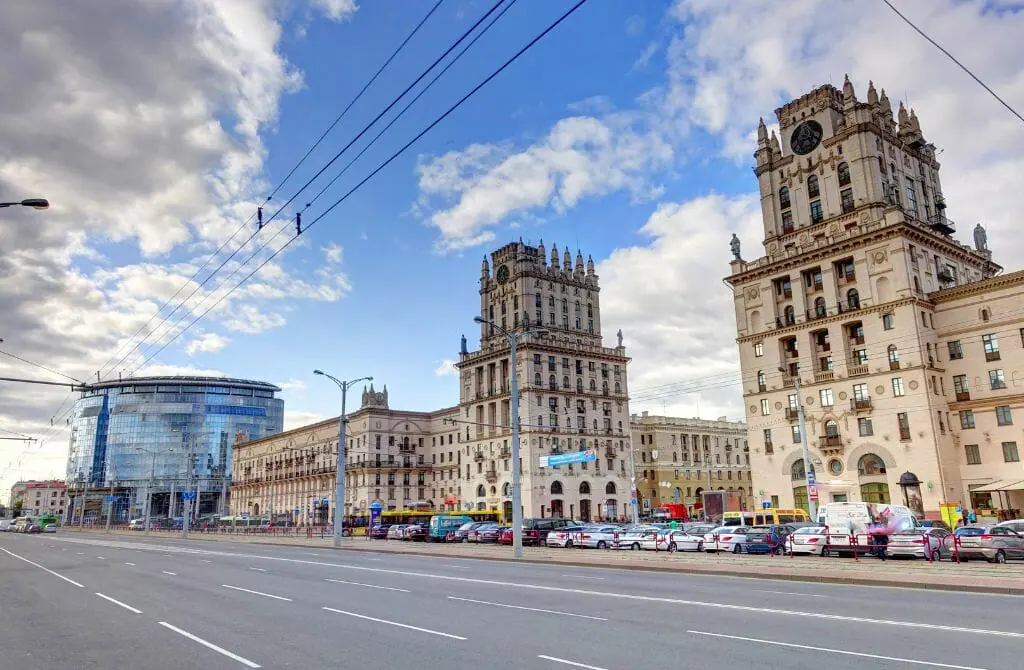
Protect Yourself While Travelling In Gay Belarus
In Belarus, LGBT rights are limited, and there is a lack of anti-discrimination protections for the community. Individuals may face discrimination, harassment, and even violence due to their sexual orientation or gender identity. As such, it is crucial for both locals and tourists to take steps to protect themselves.
It is advisable for anyone identifying as LGBT to be cautious when discussing their sexual orientation or gender identity in Belarus, especially in public places.
Although same-sex sexual activity is legal, the country does not recognize same-sex unions, and there are no protections against discrimination in employment and housing. Persons with disabilities might also face additional challenges in accessing resources and support within the LGBT community.
To protect yourself, it is important to be aware of your surroundings and exercise discretion when engaging in conversations about LGBT topics. Whether you are a local or a visitor, be vigilant about your safety and the safety of those around you. Remember that situations can change rapidly, and information may become outdated, so always seek current advice before traveling or participating in events.
Youth and children who identify as LGBT may face unique challenges in Belarus, such as bullying and lack of support. It is essential for parents, guardians, and educators to be informed about local resources and advocacy groups that can help protect and support LGBT youth.
In Belarus, several organizations work to advance LGBT rights and provide assistance to the community. One notable group is the Belarusian LGBT Human Rights Project GayBelarus, which offers support and aid to lesbians, gays, bisexuals, and transgender individuals. By connecting with such organizations, individuals can access valuable information and guidance on how to navigate the challenges they might face in Belarus.
Keep in mind that although progress is being made in some areas, the overall situation for LGBT rights in Belarus remains challenging. Stay informed, be cautious, and remain vigilant to protect yourself and the community in this Eastern European country.
